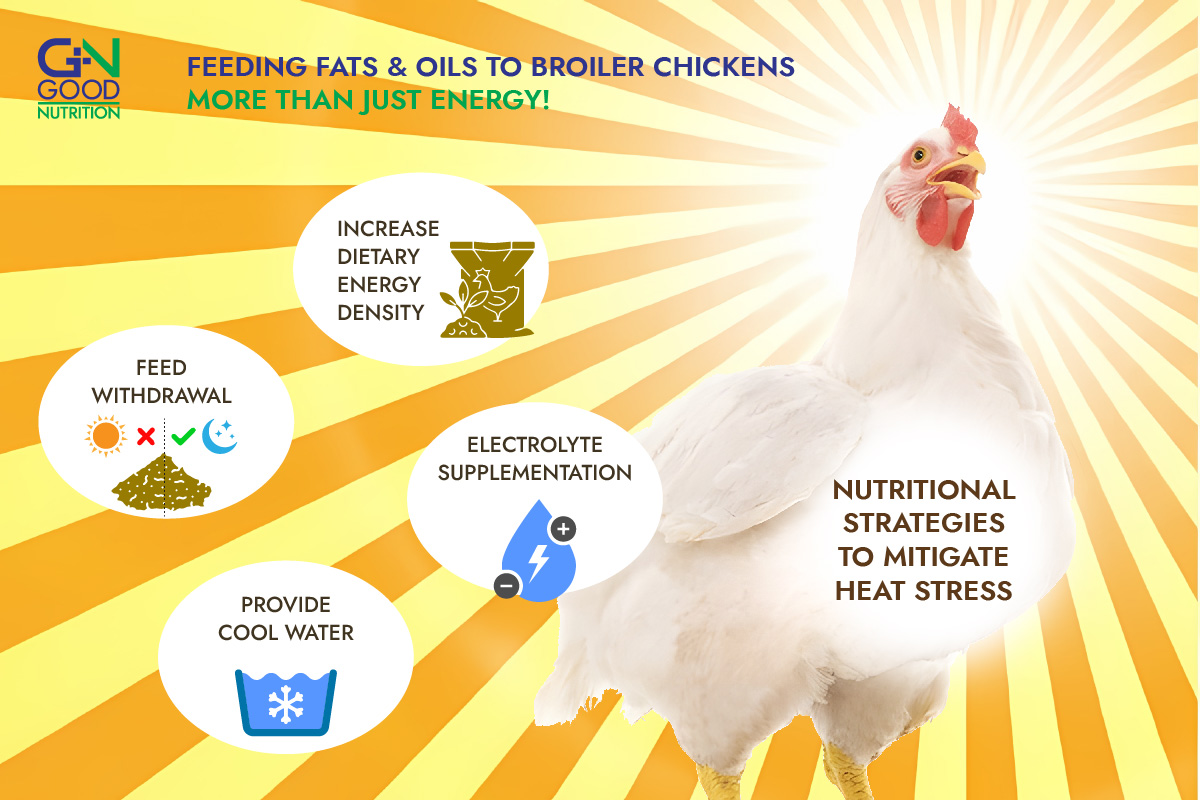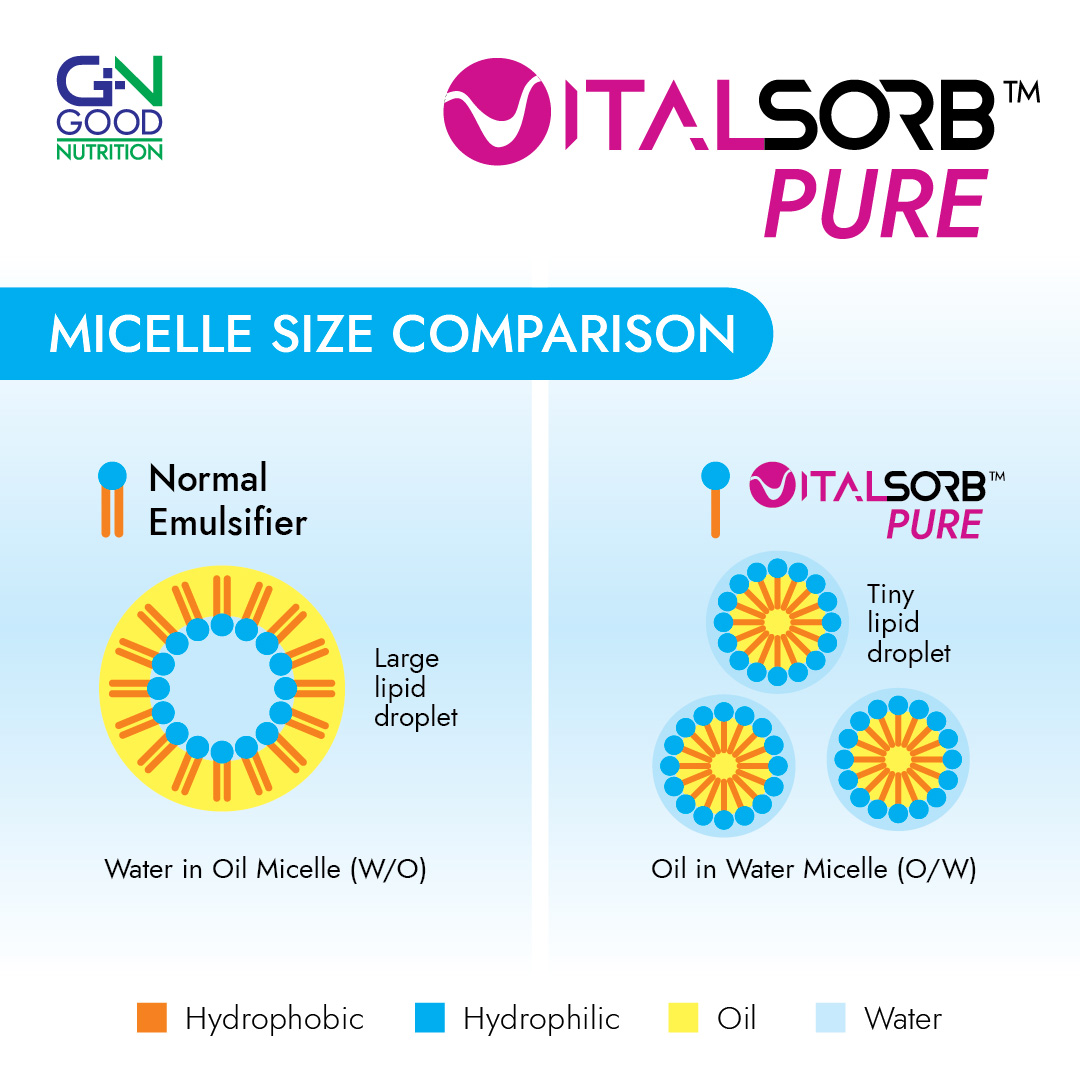Heat stress is one of the biggest challenges in poultry farming, especially in hot climates. High temperatures reduce feed intake, growth performance, and welfare of birds. To counter this, nutrition plays a central role. Feeding fats and oils not only provides energy but also helps reduce the negative effects of heat stress.
Why Fats and Oils Help
Fats and oils have a lower heat increment compared to carbohydrates and proteins. This means they generate less metabolic heat during digestion, which makes them an excellent energy source in hot weather. Supplementing diets with unsaturated fatty acids has been shown to increase the expression of heat shock protein 70, a natural defense that helps birds cope better with heat stress.
Nutritional Strategies to Mitigate Heat Stress
- Increase dietary energy density
Adding fats and oils improves energy intake without raising body heat. This allows birds to maintain performance while producing less metabolic heat. - Feed withdrawal
Withdrawing feed for several hours before the afternoon peak temperature reduces metabolic heat load. Birds can then eat more during the cooler nighttime hours, easing stress during the hottest part of the day. - Electrolyte supplementation
Adding electrolytes to drinking water replaces minerals lost due to heat stress. It also improves hydration and water intake, both of which are vital for maintaining productivity in hot conditions. - Provide cool water
Keeping water below 25 C encourages drinking and helps lower core body temperature. Under normal conditions, birds drink 2 to 2.5 times more water than feed on a weight basis. In hot weather this ratio increases, making cool water an essential part of heat stress management.
The Role of Emulsifiers
Fats are insoluble in water and do not naturally mix in the aqueous environment of the gastrointestinal tract. The more emulsified a fat is, the more digestible it becomes, resulting in greater energy availability. Vitalsorb Pure is an emulsifying agent that contains phospholipid components to support oil-in-water emulsions. This improves the digestion and absorption of dietary fats and oils, especially saturated fats that are otherwise harder to utilize.
Finding the Right Balance
Effective supplementation of fats and oils requires balance between nutritional value, production efficiency, and cost. Farmers are encouraged to consult professionals and adapt strategies to their specific farm needs. With careful planning, feeding fats and oils can improve energy utilization, reduce heat stress, and support better poultry performance.





